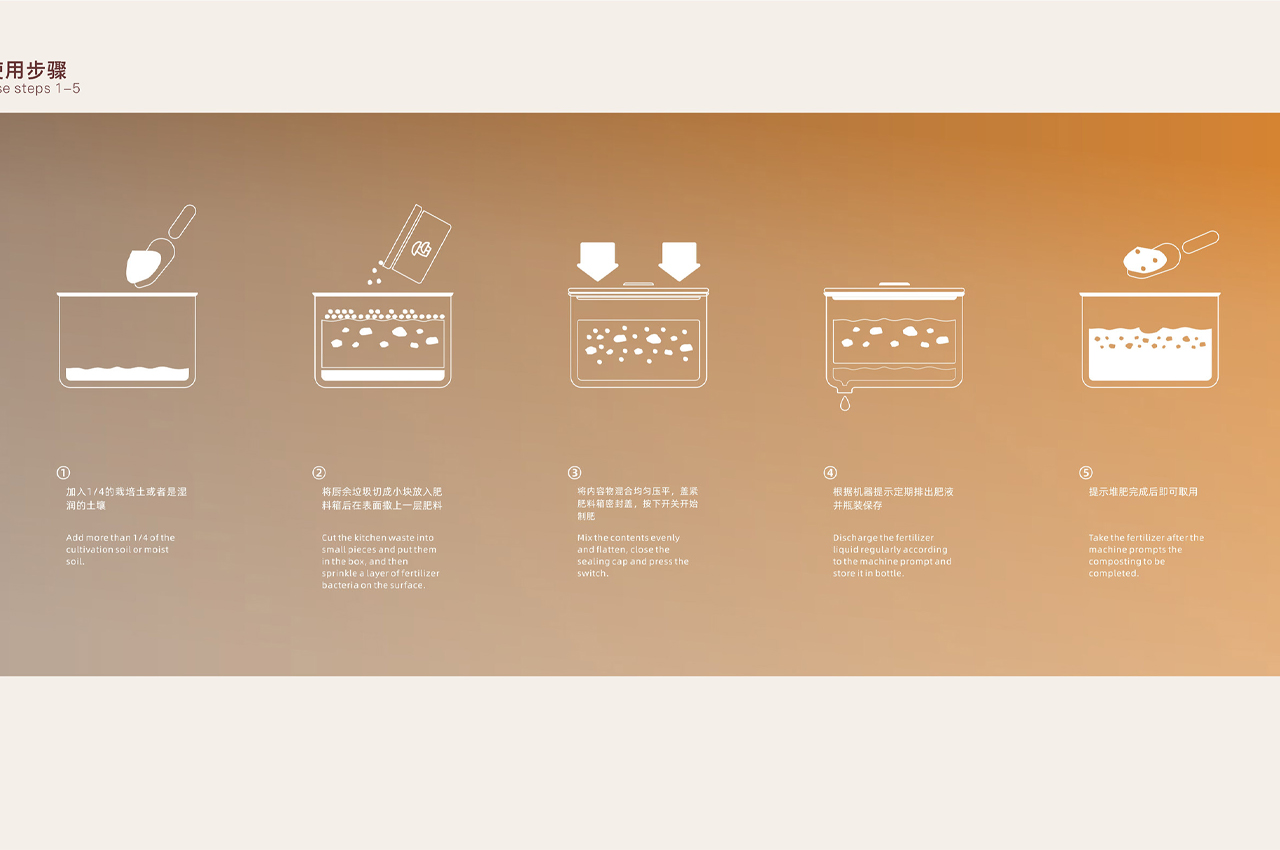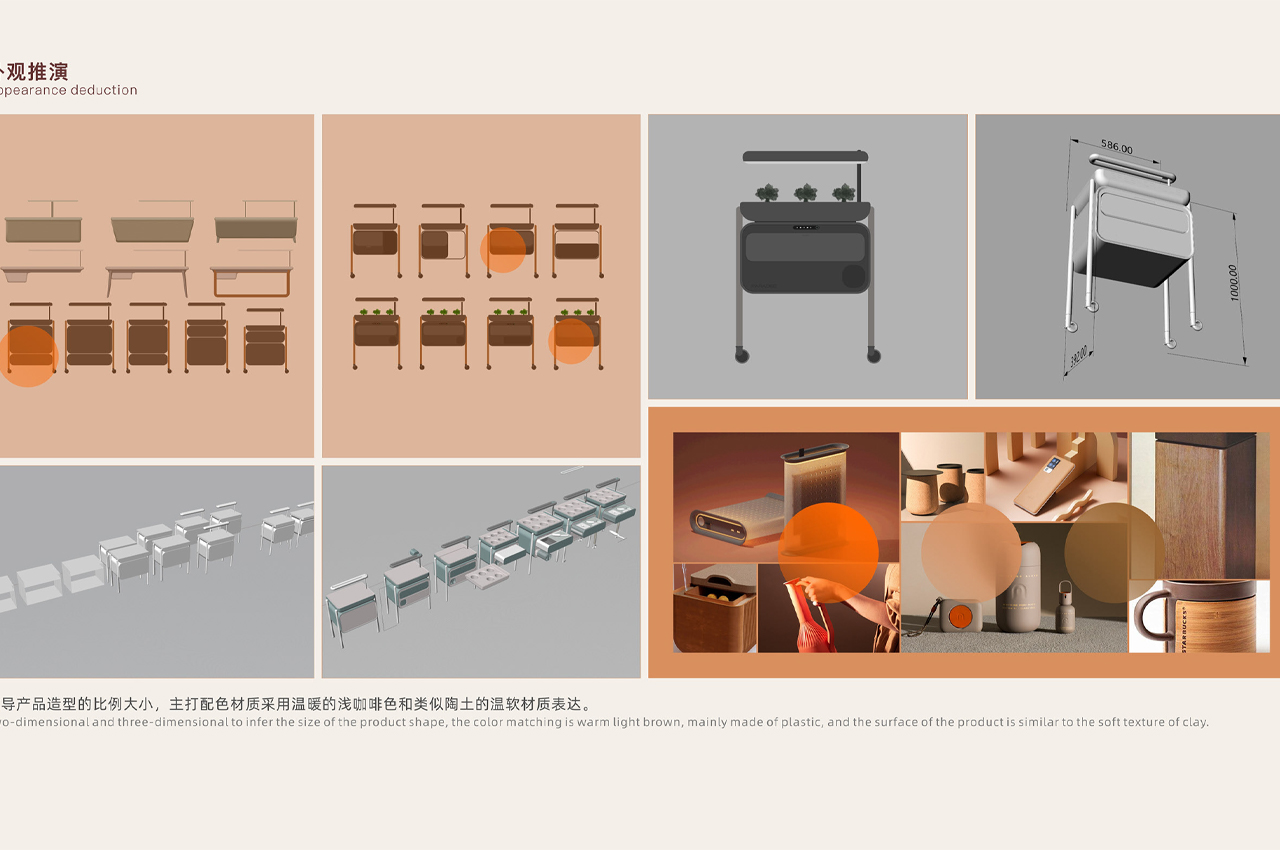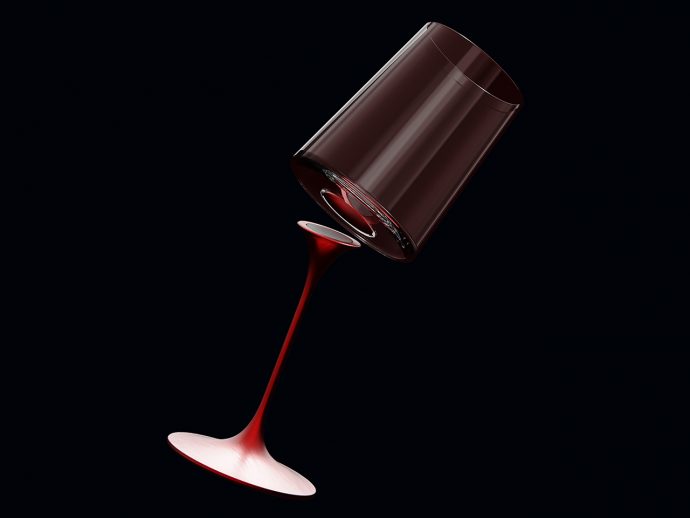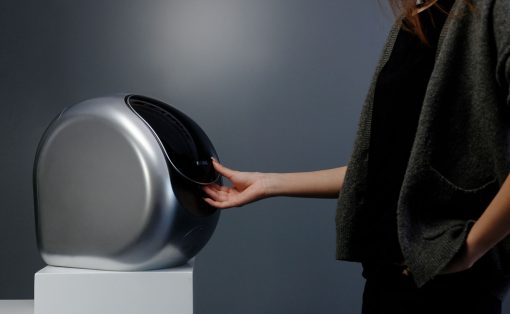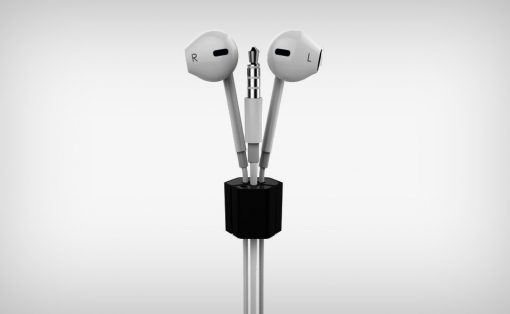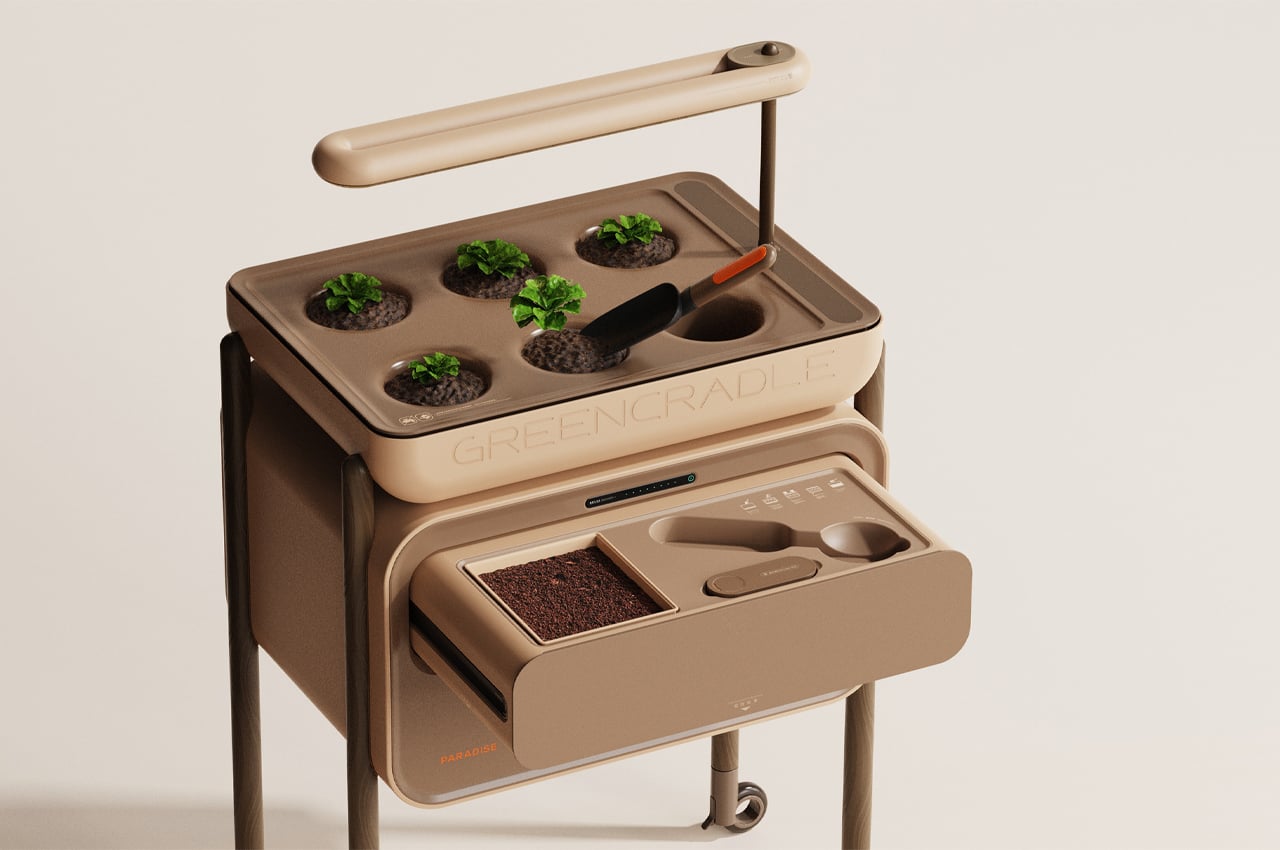
Designed to reduce domestic waste, Paradise is an automated plant cultivator and compost bin that uses integrated technology to prompt users when the compost or plants need tending.
As our worlds slowly retreat to the confines of our homes, our time spent outdoors has gradually decreased. While nothing beats the great outdoors, biophilia-inspired household products have come out as a result of the pandemic to turn our homes into glorified greenhouses. Integrating greenery into our interior spaces has never been more popular from vertical gardens to planter cork boards.
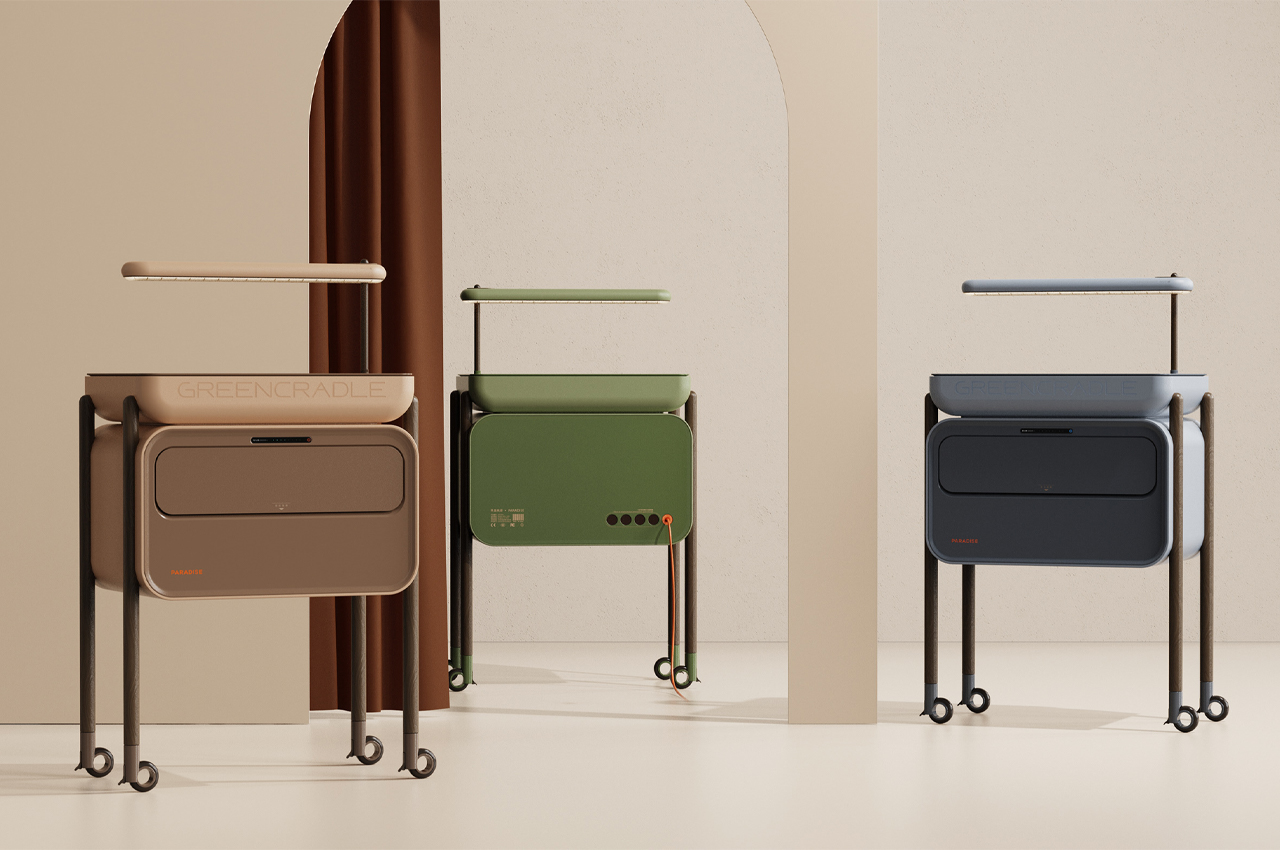
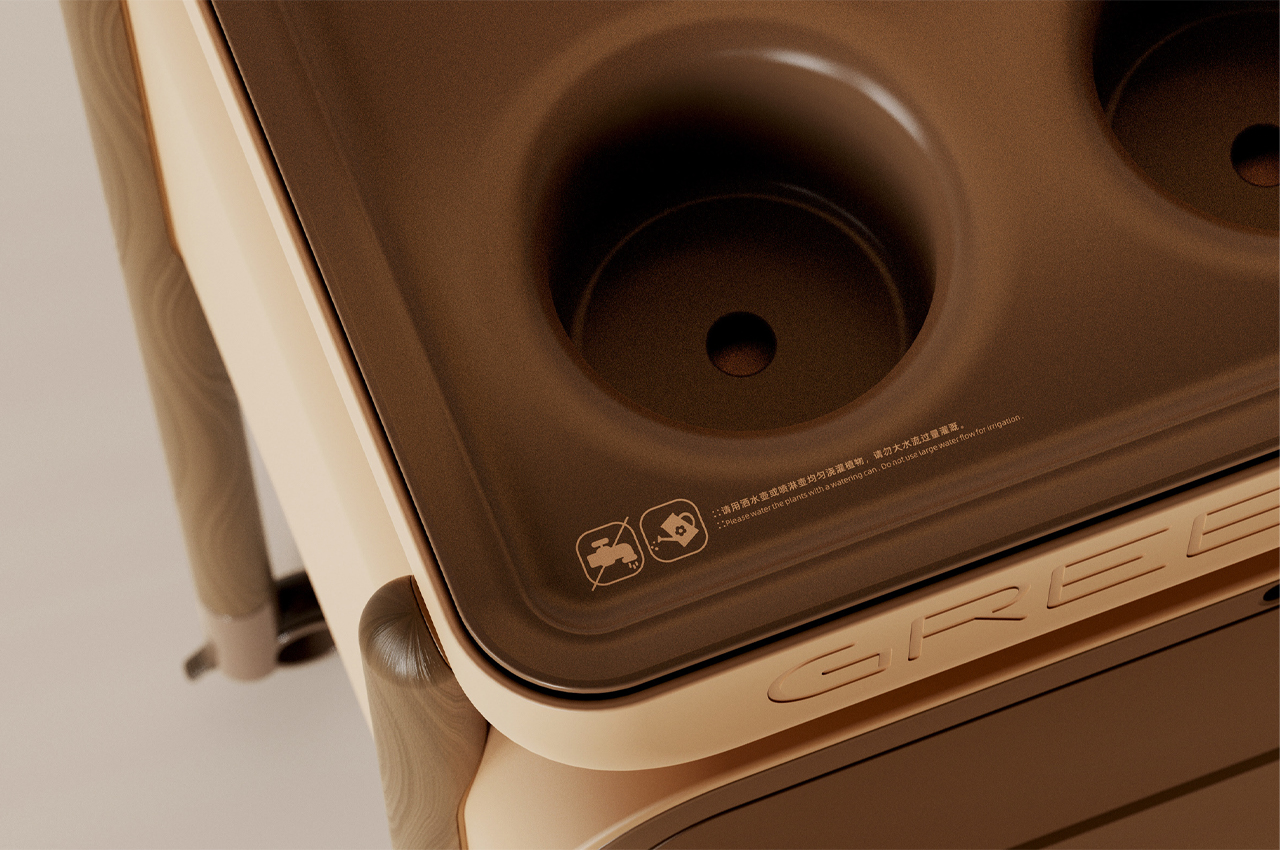
While spending more time at home has brought some much-needed rejuvenation to our interior design, it has also contributed to a global increase in domestic waste. Inspired to change that, designer Robin Akira created Paradise, a household plant cultivator with integrated compost bins and an odor-sealing lid to make use of and reduce our domestic waste.
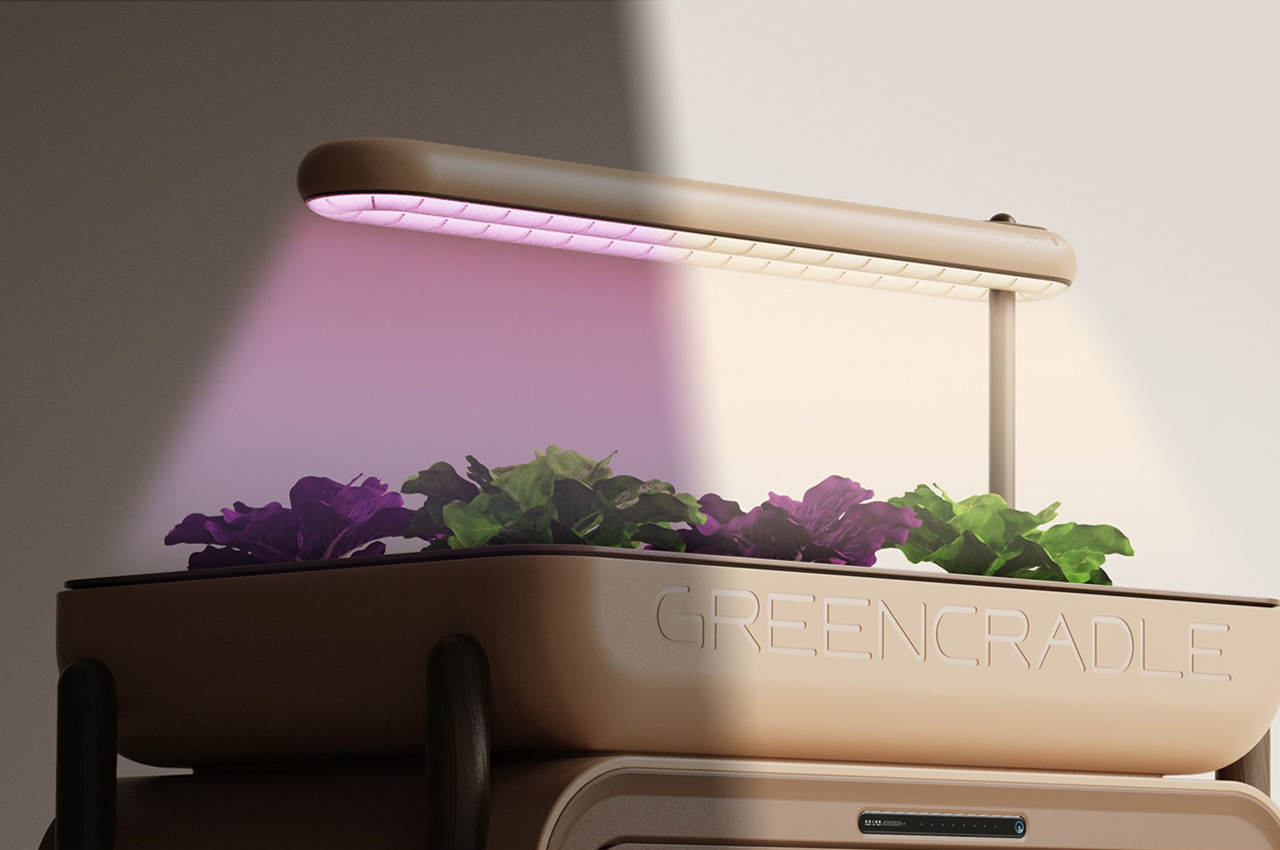
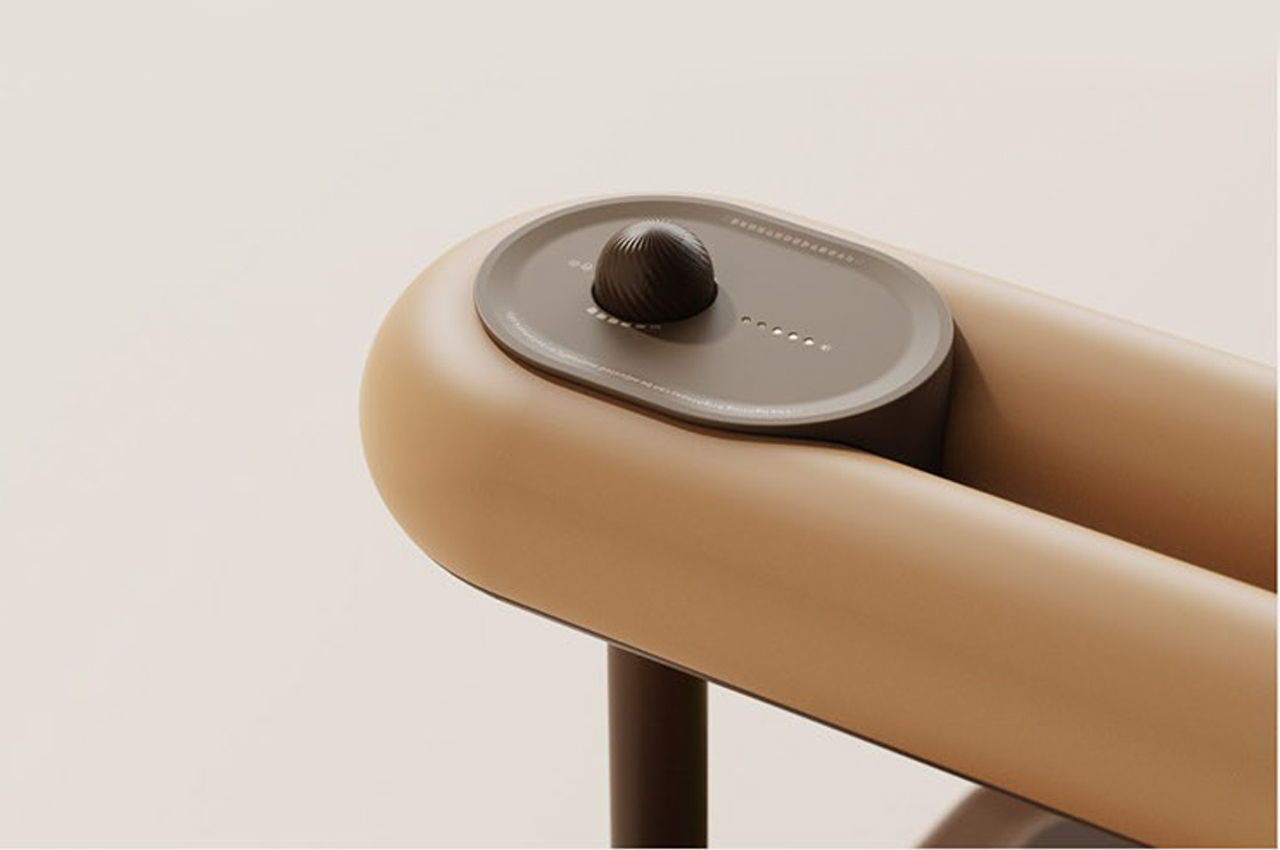
Conceptualized as a rolling cart, Paradise is comprised of modular pieces that work together to provide optimal conditions for growing plants. Starting from its top, Paradise features an LED strip that pours artificial sunlight over integrated planters located on top of Paradise’s first module.
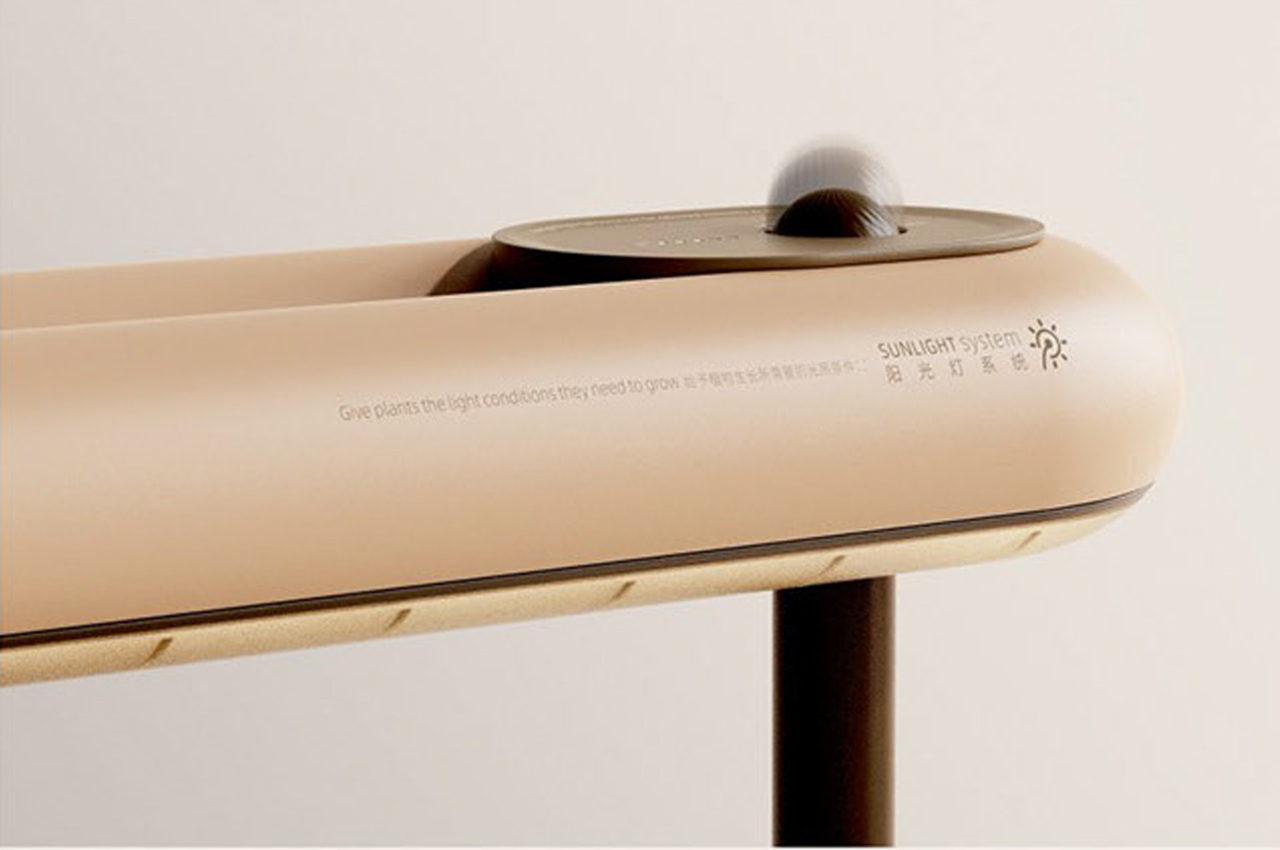
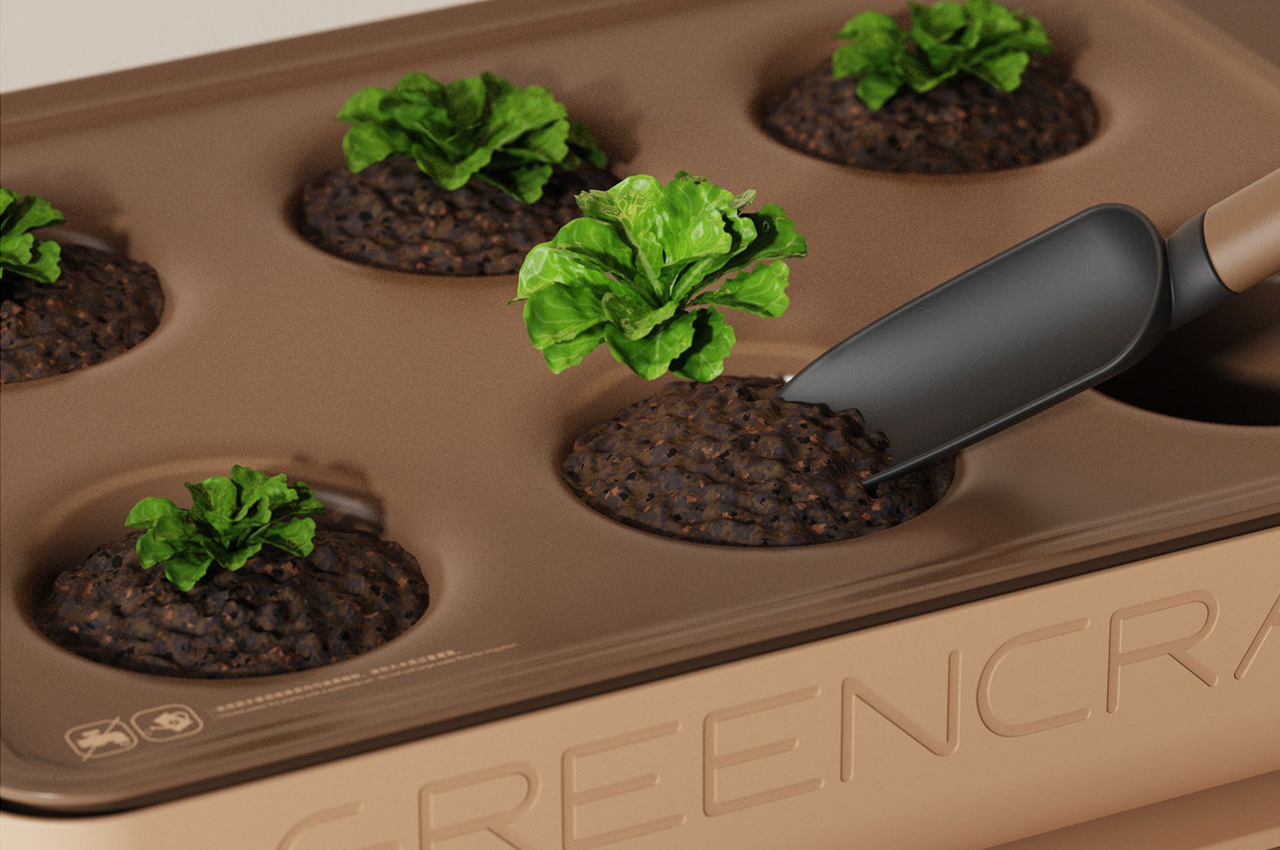
Lined with six different planters, the first module is where all the action takes place. The first module is actually a top lid that lifts to reveal a water reservoir. The water reservoir allows space for extra water to pour into as the plants above are watered.
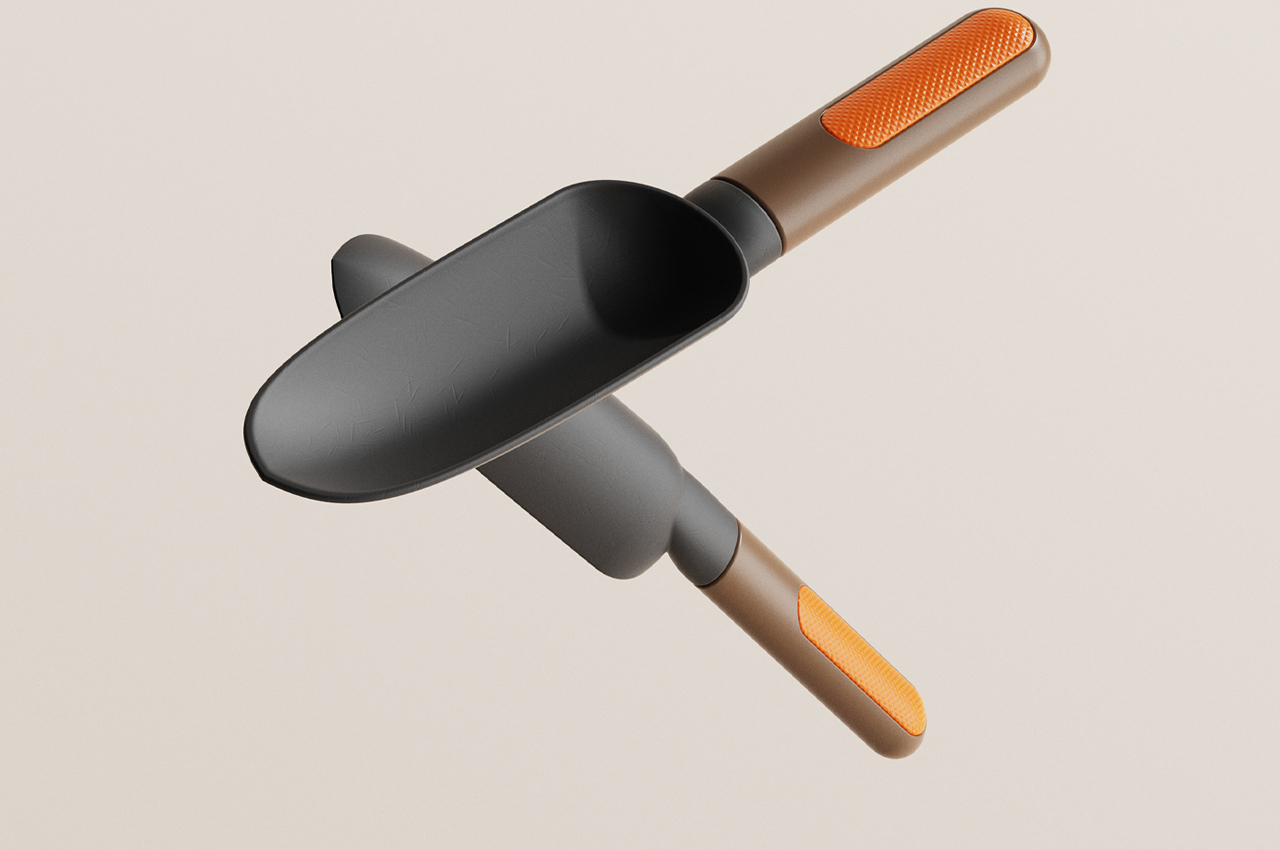
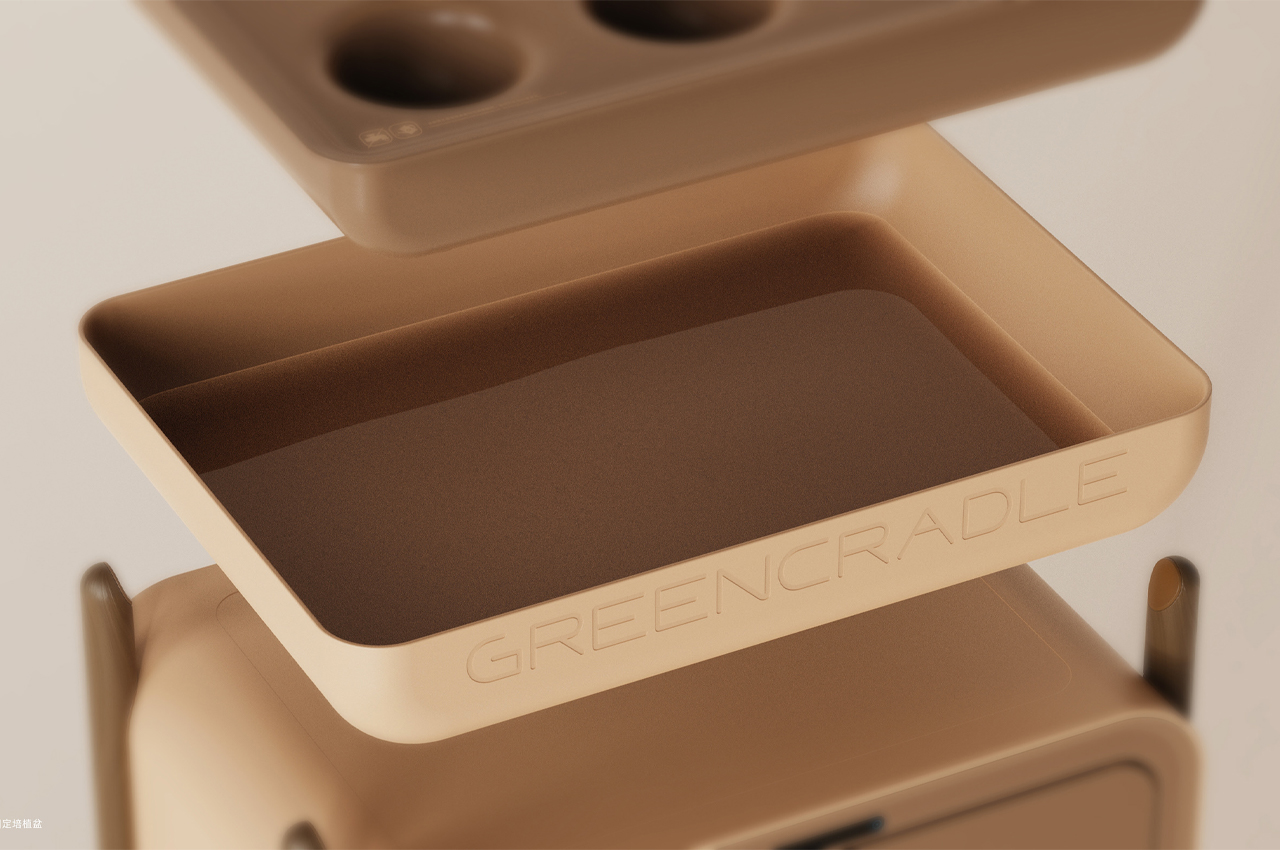
Just beneath the water reservoir, users can find a status bar that indicates the overall health of each plant. Paradise hosts an internal chip that keeps track of plant conditions, as Akira explains, “[an] internal chip of the machine controls temperature, (35℃-55℃) intelligent constant temperature fermentation, a regular reminder to discharge fertilizer liquid, storage for secondary use.” The fertilizer bin is located just below this status bar.
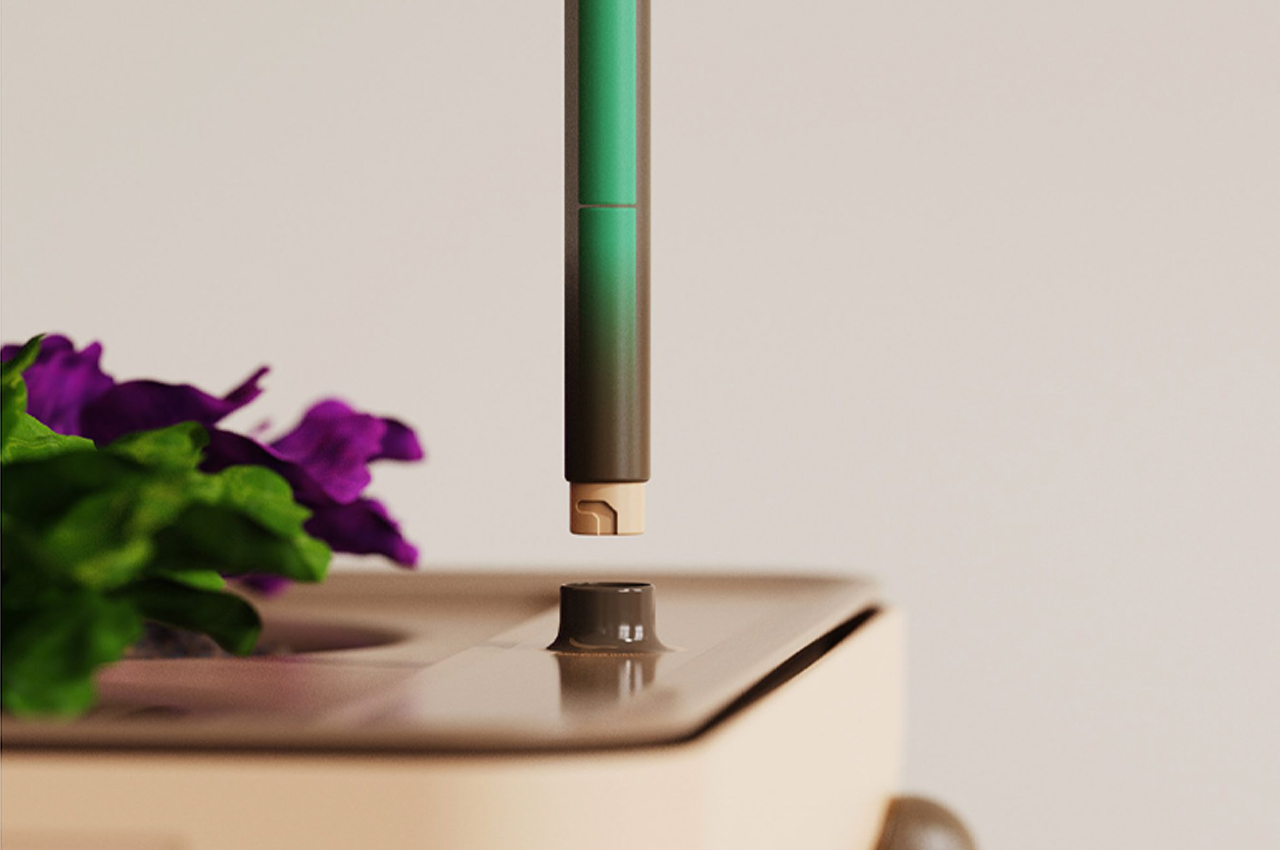
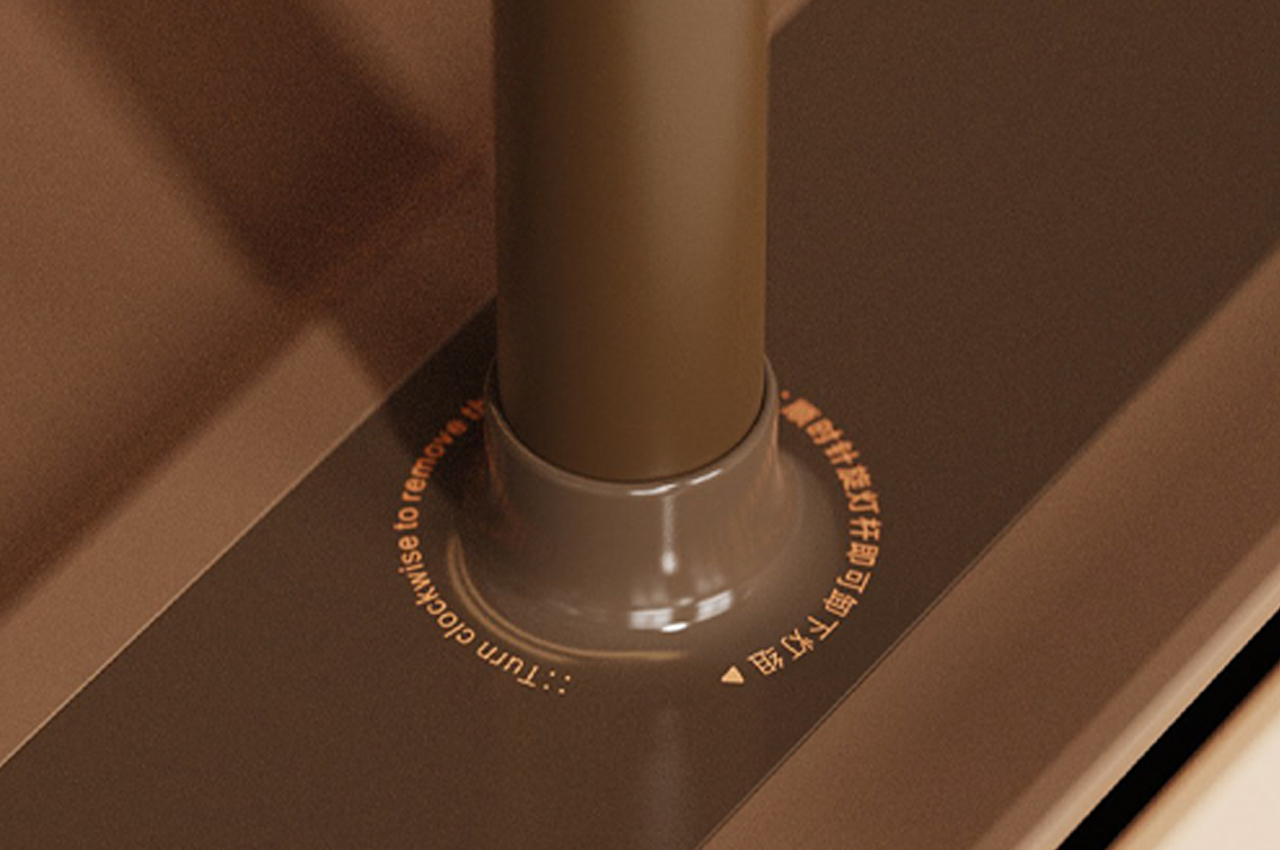
The deep fertilizing bin stands just to the left of an embedded case for a shovel. There, users can deposit their kitchen waste over the soil before adding fertilizing bacteria to start the process.
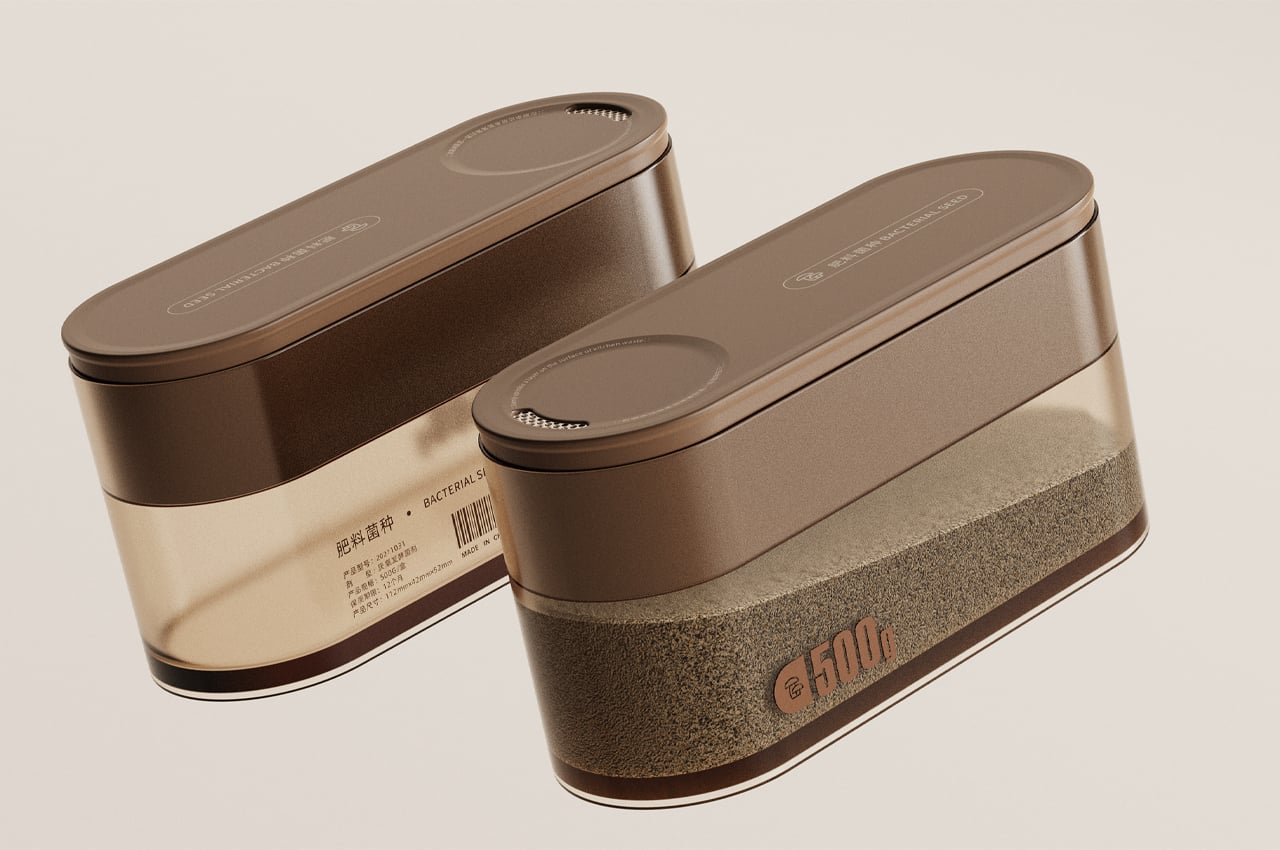
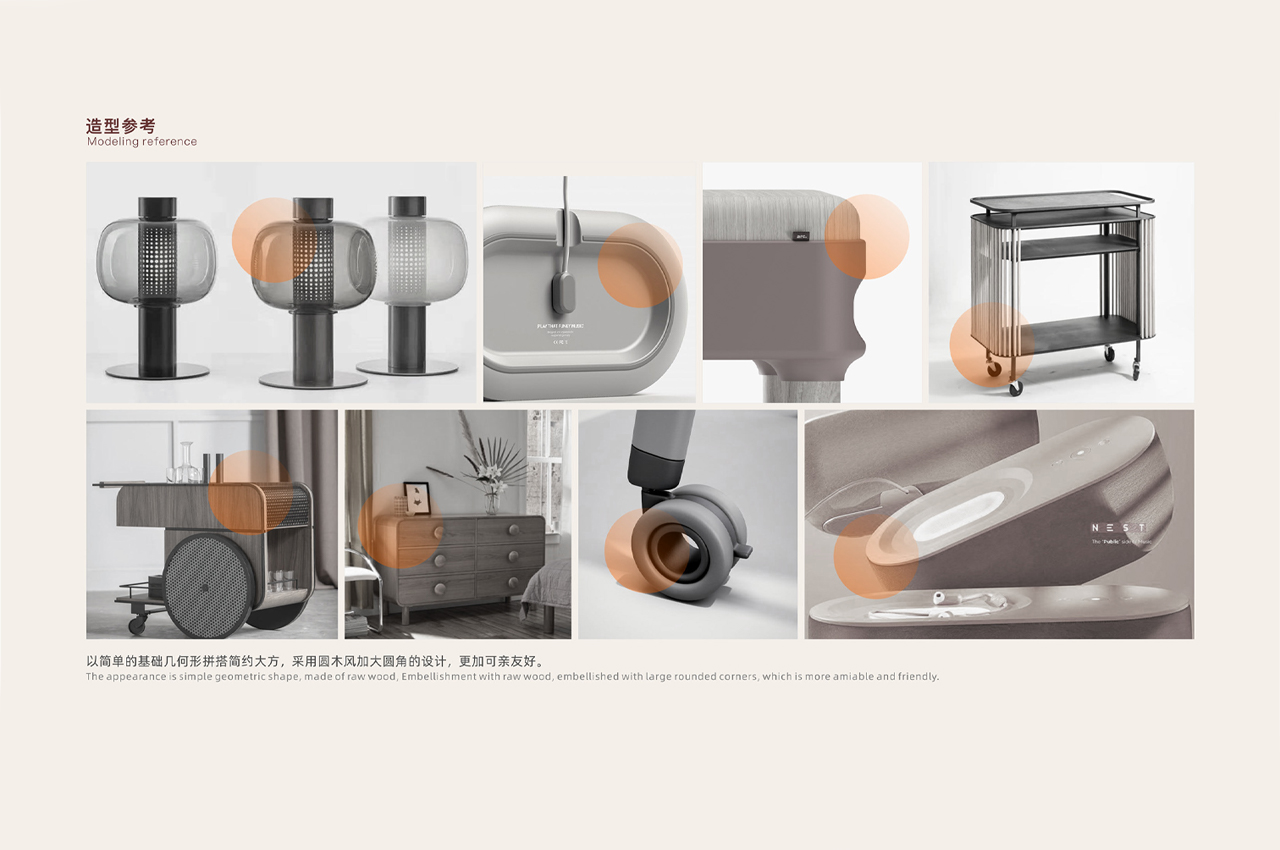
Then, once the contents are mixed together, an odor-sealing lid can be placed on top for composting to begin. The machine takes care of the rest, prompting users to discharge the fertilizer liquid and indicating when the composting has finished.
Designer: Robin Akira
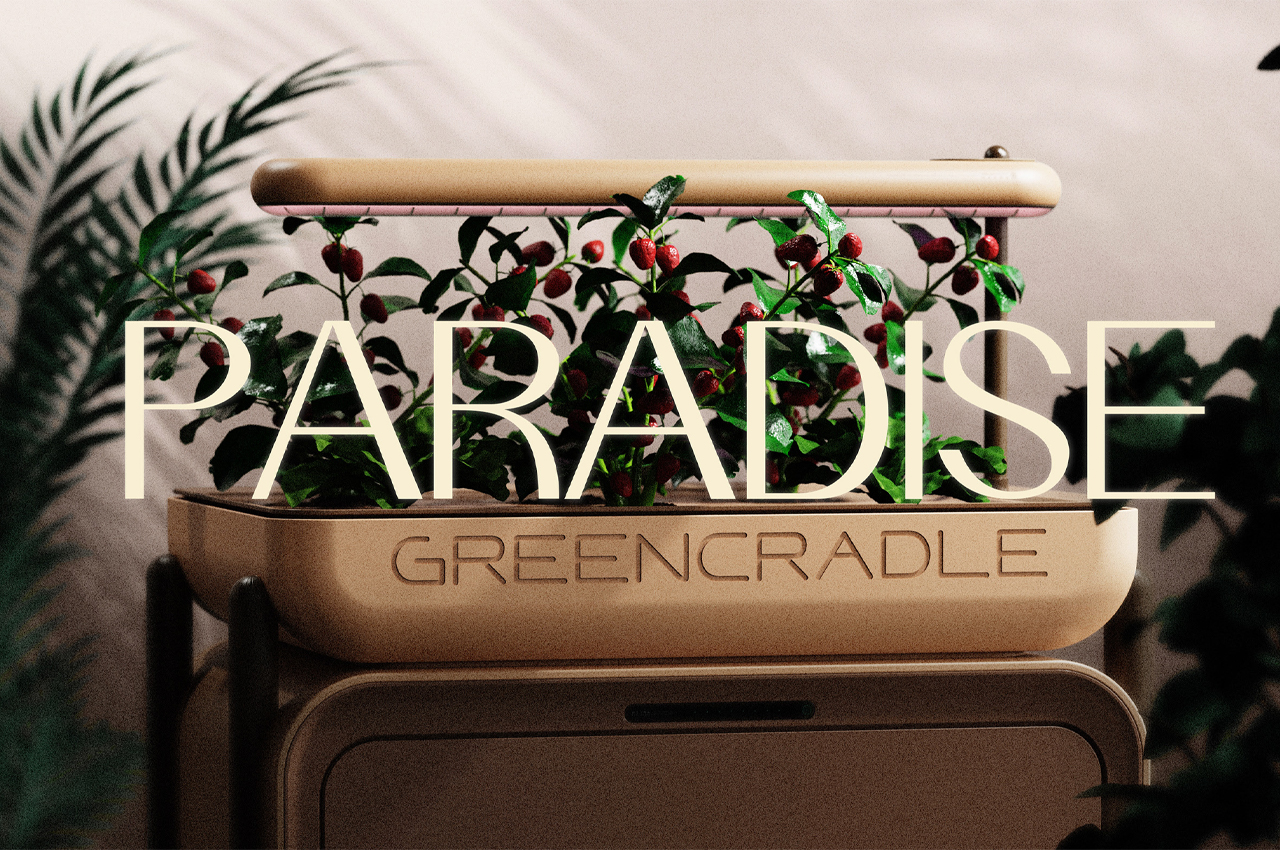
Not too big and not too small, Paradise packs a lot of functions into a single product appropriate for any sized home.
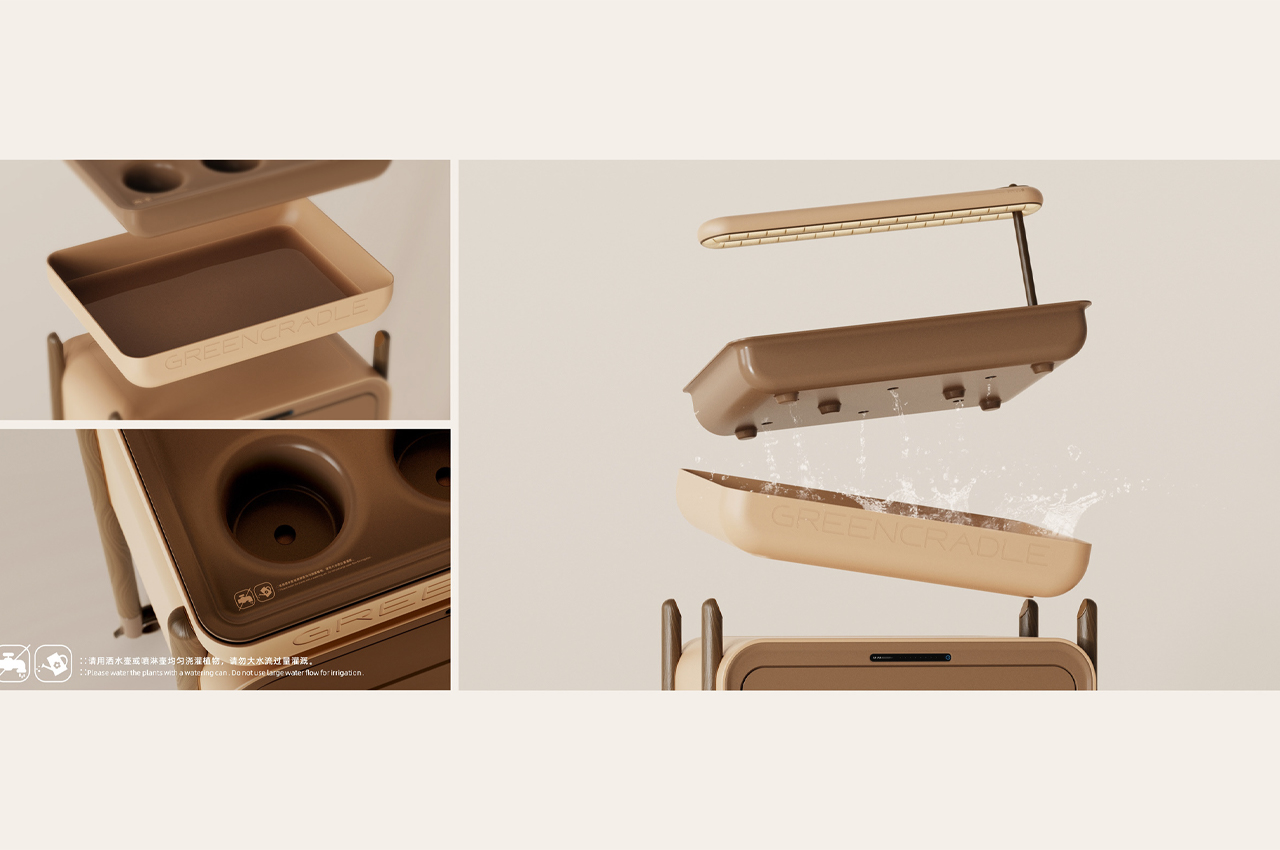
Paradise is comprised of multiple modules for easy assembly and intuitive operation.
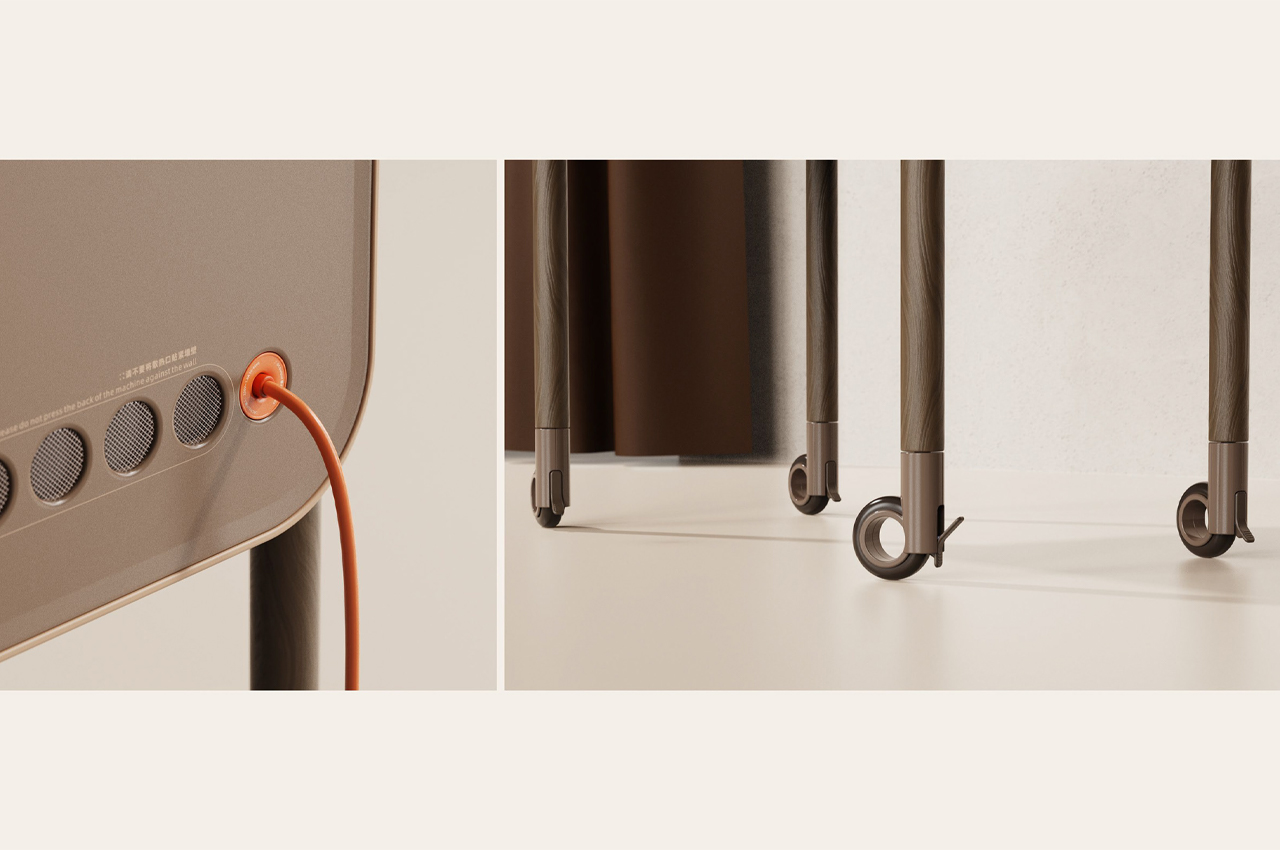
The caster wheels afford a sense of portability, requiring only to be plugged in for use.
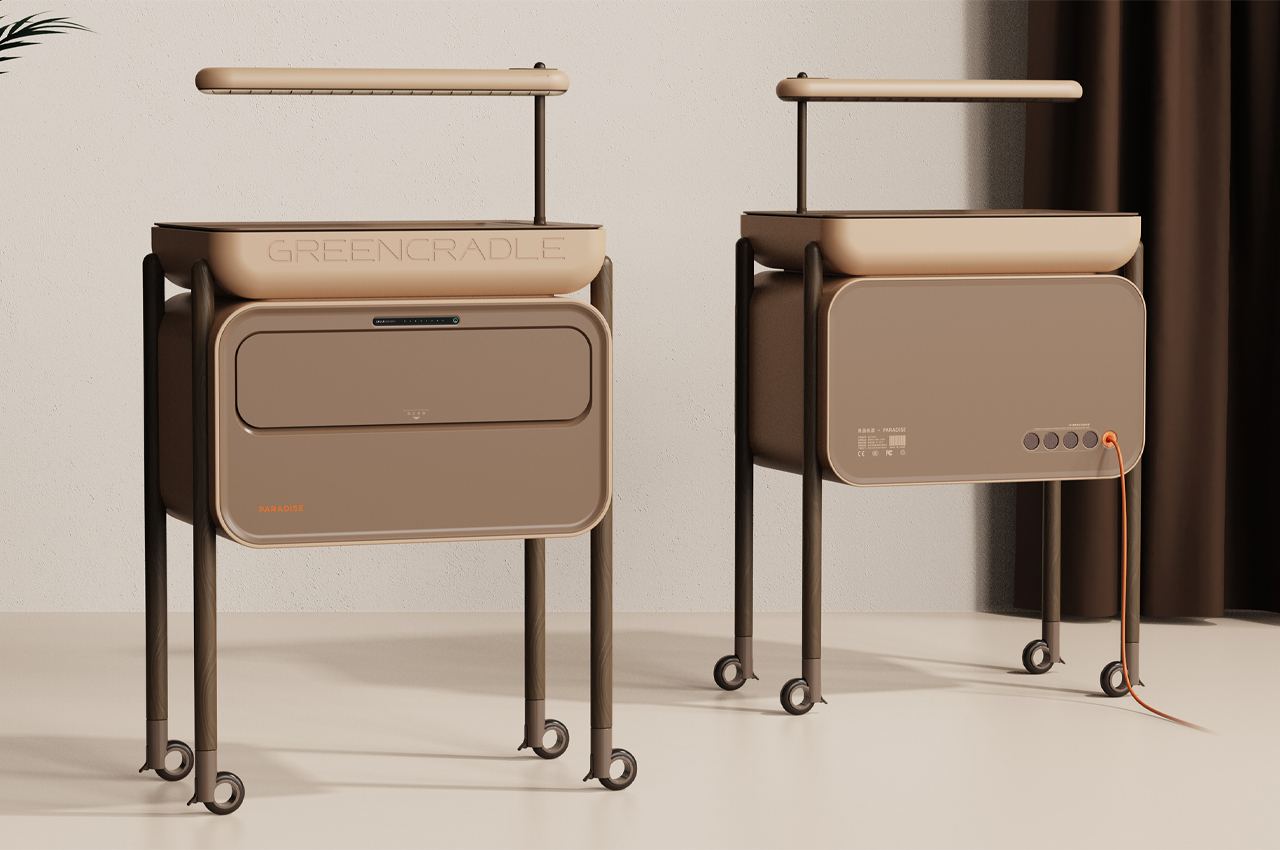
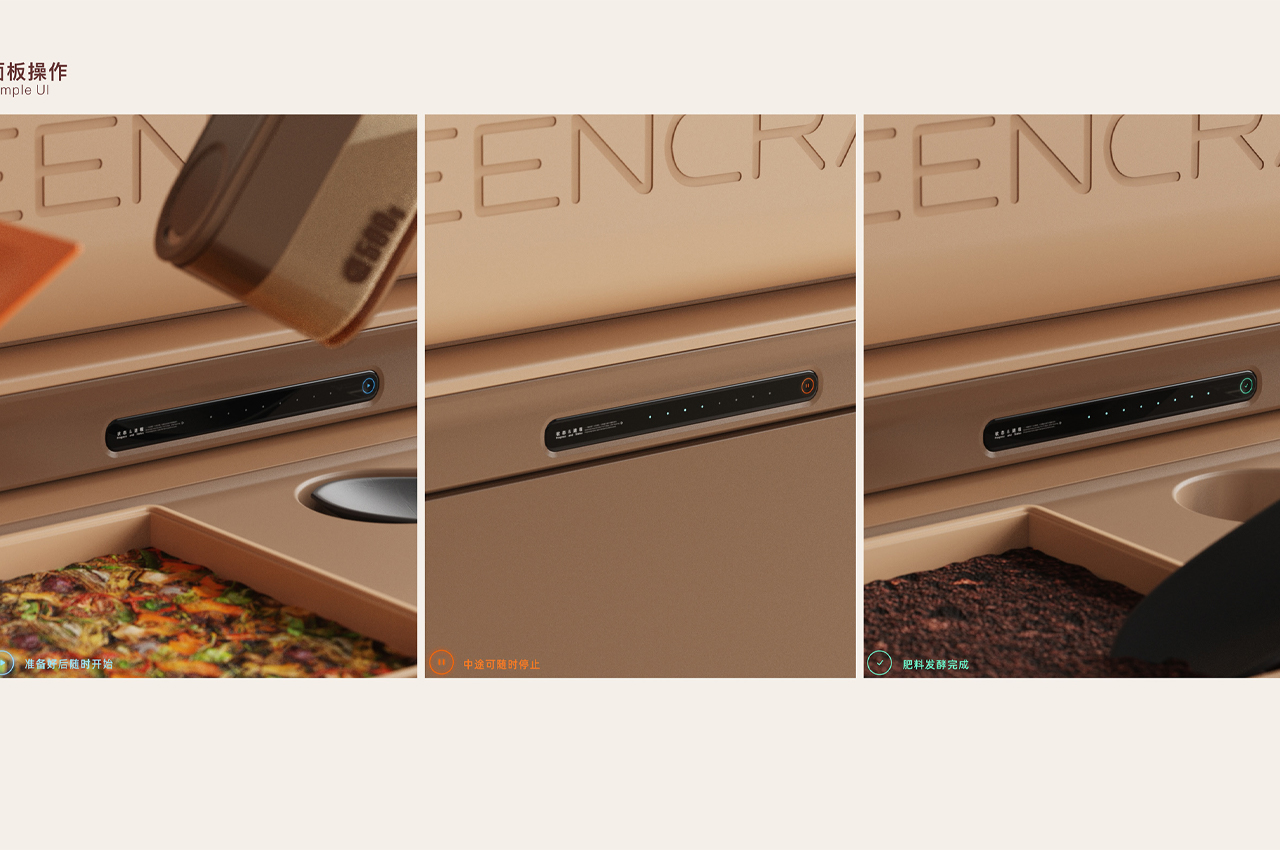
The status bar indicated to users when the compost is finished and when plants need tending.
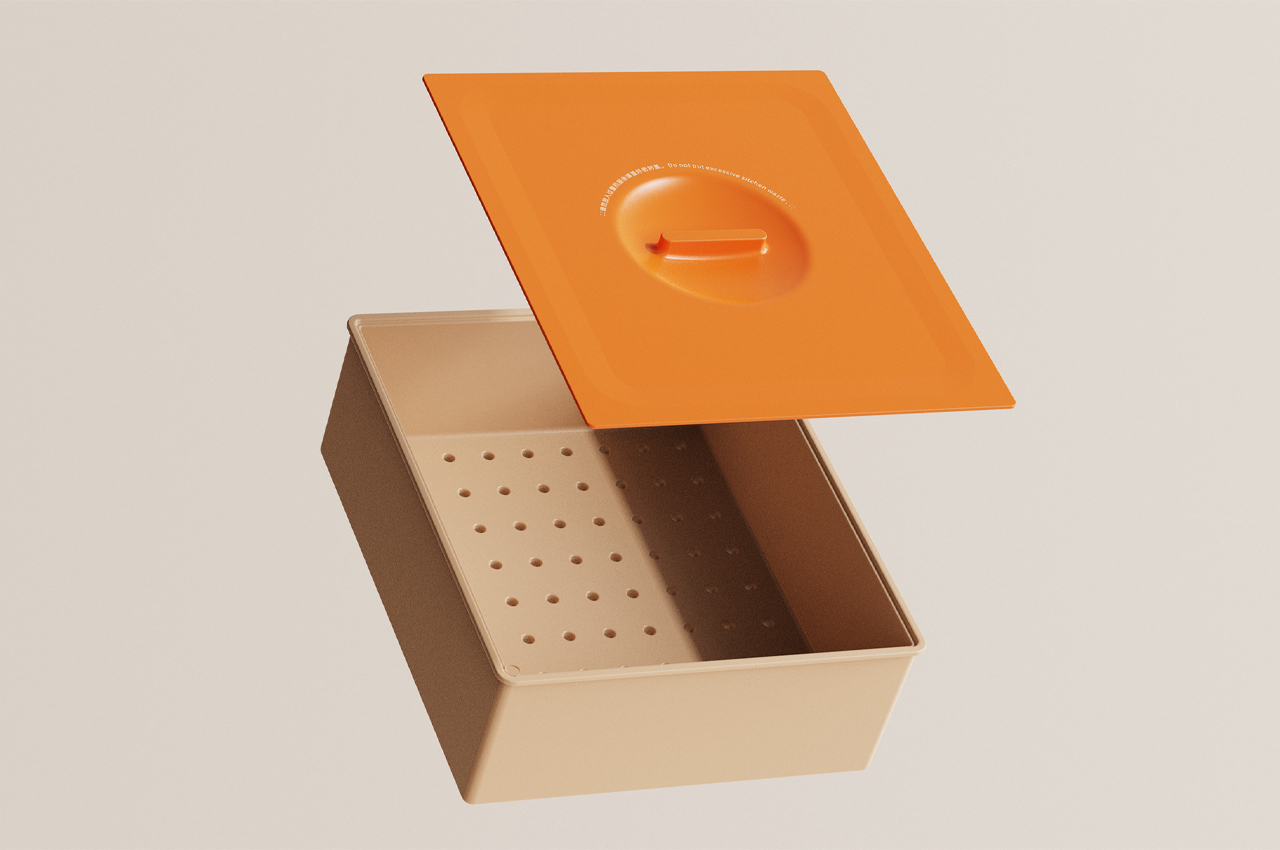
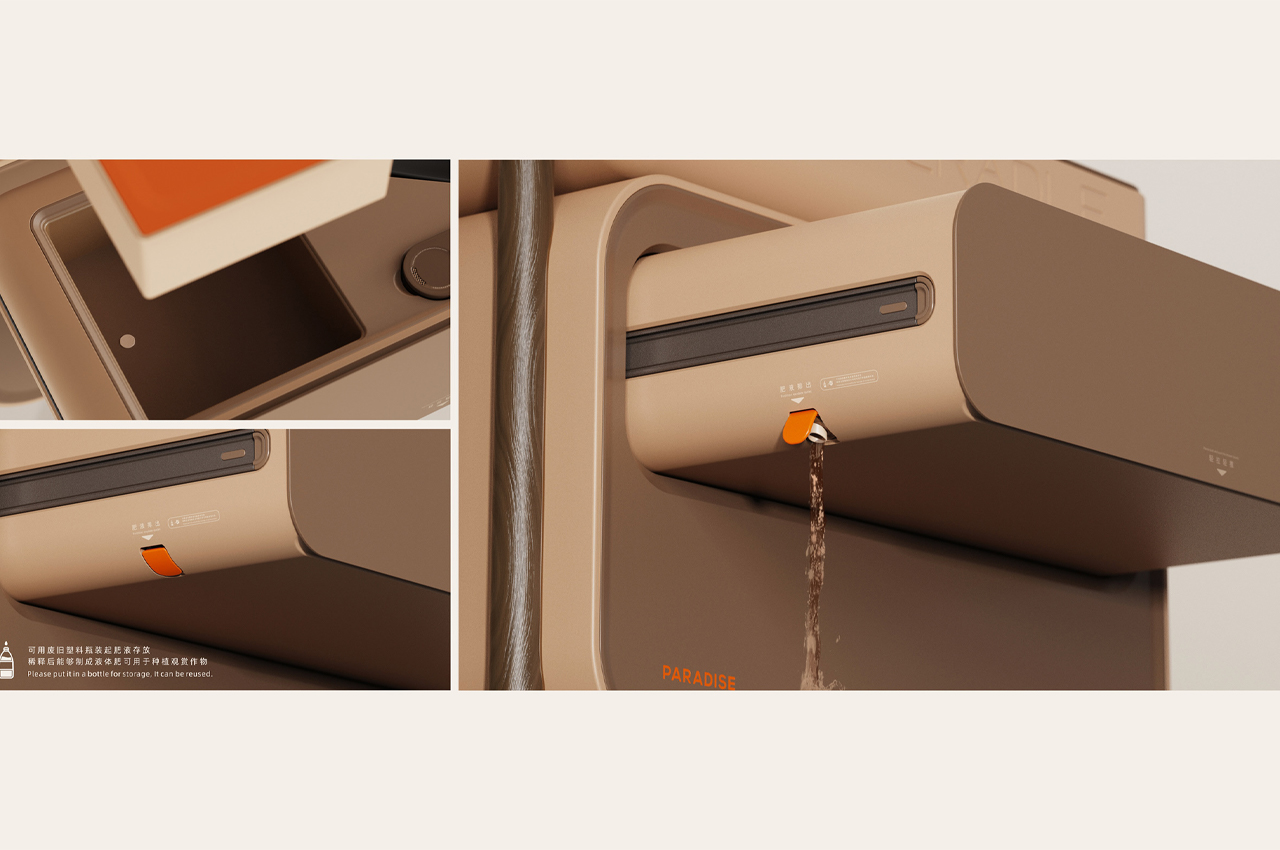
An integrated water reservoir discharges excess water once the internal chip alerts users.
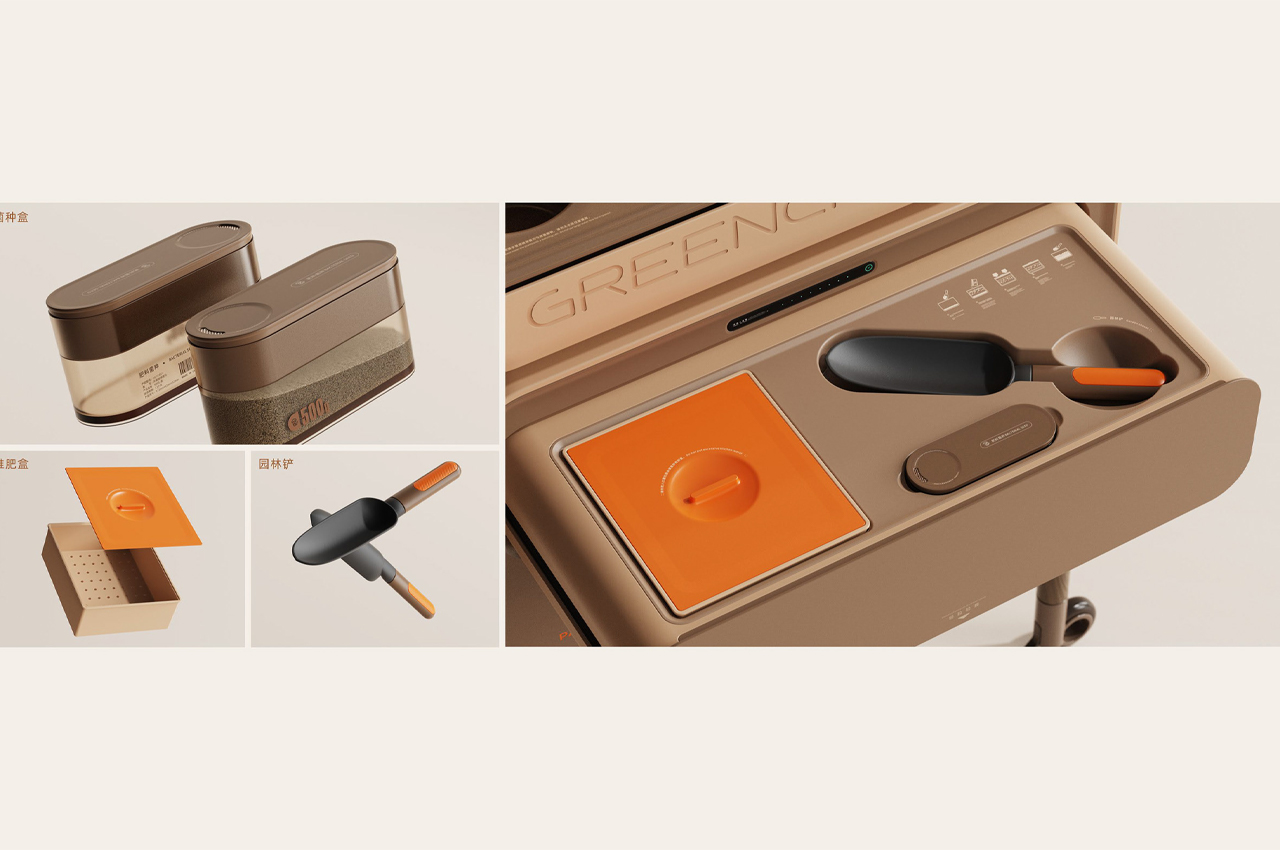
The square container is where users can compost their kitchen scraps and then an additional rectangular container allows users to store their compost.
